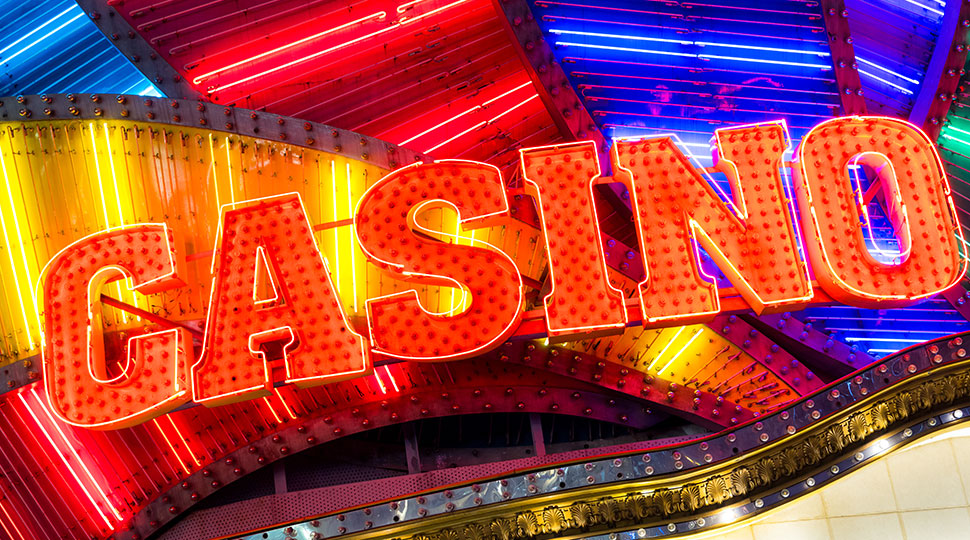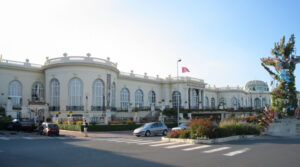Have you ever been fascinated by the world of casino gaming? Casinos and gambling games have been a part of entertainment and social gathering for centuries, providing individuals with an opportunity to risk their wealth in hopes of gaining even more.

In this article, we will delve into the captivating history of casinos and explore the development and spread of gambling games across Europe and North America. Get ready to immerse yourself in the evolution of the modern casino industry, spanning from ancient civilizations, bustling European towns, and the glittering, neon-lit landscape of Las Vegas.
Get the latest articles in your inbox fresh and ready to read …
Get the Real Action Slots "All Access Pass"
All Access Pass members enjoy unlimited access to entire articles – 100% FREE
By signing up you agree to our Terms of Service and Privacy Policy. You also agree to receive our newsletters (you can easily and quickly opt-out at any time).
You will receive free access to all of our articles while you are a member of the site.
Definition of Casinos
Casinos can be defined as establishments where various types of gambling activities are hosted. These venues are specifically designed to accommodate a diverse range of popular gambling games, such as blackjack, poker, roulette, and slot machines.
Casinos have been popular for an extensive period of time, and these enthralling establishments provide a unique environment for high-level entertainment, social interaction, and even a touch of glamour and luxury.
Overview of the History of Casino Gaming
The history of casino gaming dates back to ancient times, with gambling games taking root in civilizations such as Greece and Rome. The concept flourished further during the medieval times in Europe and later expanded to North America, with the casino culture ultimately booming in the early 20th century in Las Vegas. Today, casinos have transformed into a global phenomenon as they continue to attract millions of individuals who seek entertainment and fortune through diverse gambling games.
Early Beginnings: The Origins and Spread of Gambling Games in Europe
Ancient Greece and Rome
Gambling games were present in ancient Greece as early as the 4th century BCE. Sophisticated gambling games, such as dice, were prevalent among the rich and the powerful, who would gather in private villas and lavish banquet halls to engage in these exciting ventures. The Olympic Games, which were celebrated in Greece, also featured instances of wealth wagering on the outcomes of athletic events.
Ancient Romans further indulged in gambling games, with emperors like Augustus and Nero being known for their gambling exploits. The Roman Empire eventually created the first-known gambling houses, called “gambling dens” or “ludus” in Latin. These establishments were legalized during the reign of Emperor Nero, and they laid the groundwork for the development of casinos.
Medieval Europe and England
Gambling games became more commonplace during medieval times in Europe. These games were played by different social classes, including noblemen and commoners. At first, the gambling activities were carried out at gatherings and fairs, but as their popularity grew, venues referred to as “gaming houses” began to emerge.
Card games were introduced in Europe around the 14th century by traders and travelers from the Middle East, increasing the popularity of gambling games even further. Throughout the 15th and 16th centuries, European card games such as Baccarat and Primero (the precursor to poker) were popular among the upper classes. In Italy, the first modern lottery game was launched in 1520, becoming a significant source of government revenue.
England experienced a surge in gambling games during the reign of King Henry VIII, who was himself an ardent gambler. His passion for gambling led to the popularization of games such as “bone-throwing” (precursor to craps) and card games like “Hazard.” However, due to his excessive gambling losses, in 1541, the king issued a decree banning gambling amongst his military personnel. Despite his ban, the popularity of gambling games continued to grow alongside the rise of horse racing betting during the 17th century.
Expansion to North America
Europe’s influence on gambling games in North America reshaped the entertainment landscape on this new continent. As European settlers arrived, they brought with them various gambling games they had learned in their native countries. New Orleans, a prominent French colony, became the first hotspot for gambling games in the United States. By the early 19th century, gambling houses began to emerge. These saloons, which often featured “house-banked games,” were popular amongst locals and travelers seeking entertainment and fortune.
As the 19th century unfolded, the American West witnessed a gambling boom due to the Gold Rush and the expansion of the railroads. This period saw the establishment of casinos in boomtowns such as Tombstone and Deadwood. Among the games offered at these casinos were poker, blackjack, and roulette, alongside the addition of slot machines in the late 1800s.
The Development of Modern Casinos in Las Vegas, Nevada
Early Years (1900s-1950s)
Las Vegas, the “Sin City,” epitomizes the ultimate in modern casino culture. The city’s journey to becoming the world’s gambling capital began in the early 1900s. Nevada was the first state in the United States to legalize gambling in 1931, which opened the door for the gradual development of casinos. The initial casinos in the state were modest operations set up in former bars and saloons.
In 1941, the first major casino resort, El Rancho Vegas, was constructed on the road that would eventually become “The Strip.” This project sparked a trend of ambitious new casino developments, as entrepreneurs and organized crime figures saw the potential for significant profits.
In 1946, Benjamin “Bugsy” Siegel, a notorious mobster, established the Flamingo Hotel and Casino, marking the beginning of organized casino development in Las Vegas. The Flamingo, with its glamorous design and luxury amenities, ushered in a new era of sophistication and glamour for the city. Despite its initially poor reception, the Flamingo compounded the allure and success of Las Vegas, attracting patrons from across the nation.
Popularity Boom (1960s-1970s)
Las Vegas experienced a casino boom during the 1960s and 1970s, as investors saw the potential for significant profits in the casino industry. Massive resorts and casino complexes began to emerge, and the introduction of expansive new entertainment options, from headline performers to elaborate stage productions, dove-tailed with the burgeoning casino industry.
In 1966, the legendary Howard Hughes purchased the Desert Inn, followed by several other iconic establishments, such as the Sands, the Frontier, and the Landmark. His involvement lent a measure of legitimacy to the city once synonymous with organized crime. This period also marked the rise of casino corporations, such as Caesars Palace and MGM, which added a new level of organization and sophistication to Las Vegas’s casino scene.
Growth into a Global Phenomenon (1980s-Present Day)

Casino gaming went global during the 1980s, as major hotel and casino corporations expanded their reach. Countries like Australia, South Africa, and Canada entered the market, while the local economies of cities like Atlantic City, New Jersey, began to reap the benefits of legalized gambling.
Asia witnessed a massive boost in casino development, with destinations like Macau and Singapore emerging as major casino gaming hotspots. Macau has quickly overtaken Las Vegas in terms of gambling revenue, and today, the region is considered the world’s largest casino gaming market.
Technological advancements in the 1990s and the 2000s transformed the casino industry with the advent of online gambling platforms. The introduction of online casinos allowed players across the world to access various gambling and betting games from the comfort of their own homes, resulting in a significant increase in global casino gaming revenue.
The 21st century has also seen notable casino developments in London, Monte Carlo, and Manila, further cementing the status of casino gaming as a global phenomenon.
Last Roll Of The Dice
Casinos have come a long way since their humble beginnings in ancient Greece and Rome. As one of the oldest forms of entertainment, casino gaming has managed to thrive and adapt with the changing times. With the rise of online casinos, emerging markets across Asia, and continued advancements in technology, it is clear that casino gaming has an exciting and dynamic future ahead.
Passionate risk-takers and sophisticated gamblers have made casinos an inextricable part of our global entertainment culture. As this captivating industry continues to prosper, players and gaming enthusiasts alike can expect further innovations, increased accessibility, and a broader array of gaming options in the years to come.








